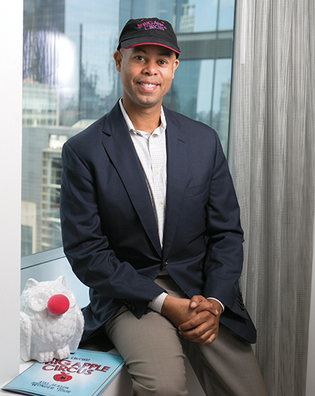 loading
loading
Where They Are NowA lawyer puts the circus back on its feetGregg Walker ’97JD “wanted to be one of the people in the middle of the transactions.” Lenore Skenazy ’81 is president of the nonprofit Let Grow and founder of the Free-Range Kids movement.  Julie BrownGregg Walker ’97JD started his own investment company, largely focused on live entertainment. He also runs the once-bankrupt Big Apple Circus. View full imageYale Law School graduate Gregg Walker ’97JD has been the head of the corporate development department at Sony, vice president of mergers and acquisitions at Viacom, and an investment banker at Goldman Sachs. Enough for an entire career, right? No. He’s now the head of his own firm, G. A. Walker, which invests in media and entertainment. And P.S.: he has brought New York City’s Big Apple Circus back from the brink. Yale Alumni Magazine: What early childhood experience had a significant impact? Gregg Walker: I lived in East Windsor, New Jersey, until I was about eight, and I became a big Yankees fan. In 1978, the team was behind by fourteen-and-a-half games and came back to win the World Series. How insane it was that the team actually won the World Series. Having seen something like that at a young age, I think I’m more optimistic than many people I encounter. Y: So you always dreamed of playing pro ball? W: As a child. Y: And later, you dreamed of juggling? Lion taming? W: I didn’t grow up in a circus family. I grew up wanting to be a mergers and acquisitions attorney. Y: You grew up dreaming of running away to join . . . Goldman Sachs? W: When I was in junior high, my father’s company was associated with rumors of being acquired or merging. I was always fascinated by the concept of hostile transactions and of boards meeting to determine whether to sell or buy. And I knew attorneys played a big role. I wanted to be one of the people in the middle of those transactions. Y: Were you pre-law in college? W: I went to Washington [University] in St. Louis and majored in economics and political economy. I was president of the student body for two terms. The first debate between Bill Clinton [’73JD], George Bush [’48], and Ross Perot was at Washington U., and it was my first term as president, so I met with them. I laughed with Bush that he was running for reelection and I was also. But I was victorious. Y: What made you come to Yale Law? W: It’s the greatest place in the world. My first year I participated in the Frederick Douglass Moot Court Competition. Most schools send third-year students. Yale had a tradition of sending first-year students. It was a truly spectacular experience. Y: You were victorious again? W: No, but a lot of us did really well. Y: And continued to? W: Cory Booker was in my class. And so was Richard Buery, who was recently deputy mayor of New York City. And one of our classmates essentially ended up writing the Iraqi Constitution. Y: And you? W: I was able to go direct to Goldman in the M&A department. I stayed for nine years, most of that time advising media and telecom-related companies. Y: Then on to Viacom and Sony. You were at the top of the corporate world! What on earth drew you to clowns and jugglers? W: I started my own investment firm focusing on media and entertainment-related transactions. The bulk of our efforts have involved live entertainment opportunities. Y: But the Big Apple Circus wasn’t actually live anymore—it was bankrupt, right? W: It did not perform in 2016. A group of investors that I was not part of bought the company out of bankruptcy. About a year after that they asked us to join them as advisers, then as investors, and [last year] I was asked to take on the role of CEO. Y: How goes it? W: We just slightly less than doubled the number of attendees from the prior year. What I love about the circus is that it’s done in the round. So as you look at the performers you see the faces of other audience members. It’s an experience that can’t be touched by a traditional theater, where the audience is in the dark. Some of the greatest live entertainment is done that way—but I don’t think it can compete with the shared experience.
The comment period has expired.
|
|